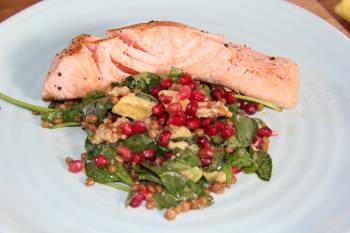Have You Had A Gutful Of Gluten Intolerances?

Have You Had A Gutful Of Gluten Intolerances?
Coeliac disease, gluten sensitivity, gluten intolerance, wheat allergy – you may have heard these terms used interchangeably in recent years as gluten-free diets surge in popularity. However those who follow such diets are often unfairly targeted as -fad followers' by those with a limited understanding of the related conditions.
Recent research conducted by Amcal showed that 50% of the gluten-free population admitted to having been -gluten shamed' by loved ones, who either think it is a passing fad, a means of losing weight or an inconvenience at social gatherings*.
With close to one in 10 (8%) Australians now following a gluten free diet and approximately one in 70 people affected by coeliac disease, why is there still a lingering stigma attached to gluten-free eating? Amcal Senior Pharmacist James Nevile says the lack of community awareness around coeliac disease and non-coeliac gluten sensitivity needs to be addressed.
'While coeliac disease is a serious autoimmune disease which requires an individual to completely eliminate gluten from their diet, some people may choose to adopt a gluten-free lifestyle if they experience adverse effects after consuming gluten," he said.
'If you are experiencing sensitivity to gluten and consistently suffer symptoms such as digestive issues, lethargy, irritability or headaches, a definitive diagnosis to rule out coeliac disease is recommended.
'As a first step, you may wish to do a simple finger prick blood test to screen for any obvious indicators that you might be at risk. This can be done at your local Amcal pharmacy or GP, and depending on the results you may be referred to a GP or specialist for further assessment."
Check our this recipe for Crispy Salmon with Lentil and Pomegranate Salad
Here, Amcal Senior Pharmacist James Nevile sets the record straight on the great gluten debate:
BELIEF: Gluten-free diets are a better option for overall wellbeing
REALITY: Despite close to one in ten (9%) people believing that gluten free diets aid weight loss and help to improve overall health, there is no evidence to suggest that it is beneficial for people who have not been diagnosed with coeliac disease or non-coeliac gluten sensitivity.
For those voluntarily adopting a gluten-free lifestyle, it is important to understand that some gluten-free foods are higher in sugar in fats, lower in fibre and may lack the fortification of extra vitamins and minerals that you may find in a regular gluten-containing diet.
REALITY: Eliminating gluten from your diet is not a trivial undertaking and should only be overseen by a medical professional such as a GP, Accredited Practising Dietitian or pharmacist to ensure the most reliable and safe outcomes.
Importantly, it is recommended that individuals are screened for coeliac disease before beginning an elimination diet to enable the detection of coeliac antibodies. Health professionals will also ensure their patient's gluten-free regimen contains essential nutrients to prevent risk of vitamin deficiencies.
BELIEF: Non-coeliac gluten sensitivity doesn't really exist
REALITY: Most of us can digest gluten without any trouble, but others are not so lucky. Individuals who do not test positive to coeliac disease, yet cannot tolerate gluten and often experience similar symptoms to those with coeliac disease, are sometimes diagnosed with non-coeliac gluten sensitivity or Irritable Bowel Syndrome.
While consuming gluten does not cause the same serious intestinal damage as those with coeliac disease, people with non-coeliac gluten sensitivity find that their symptoms are alleviated by following a gluten-free diet, on the advice of a healthcare professional only.
BELIEF: It's becoming easier for people to follow a gluten-free diet
REALITY: The challenges faced by those with coeliac disease and non-coeliac gluten sensitivity should not be trivialised. While supermarkets and restaurants are responding to the growing need for more gluten-free options, the cost of these specialised foods and ingredients is often significantly higher.
In fact, those diagnosed with gluten disorders agree that the cost of following such a lifestyle is the most difficult part (39%); followed by trying to find gluten-free options when dining out (33%) and not being able to eat the foods they once used to enjoy (26%).
Anyone concerned about gluten sensitivities may wish to consider a coeliac disease screening available exclusively at selected Amcal+ stores nationwide for $39.99.
MORE





